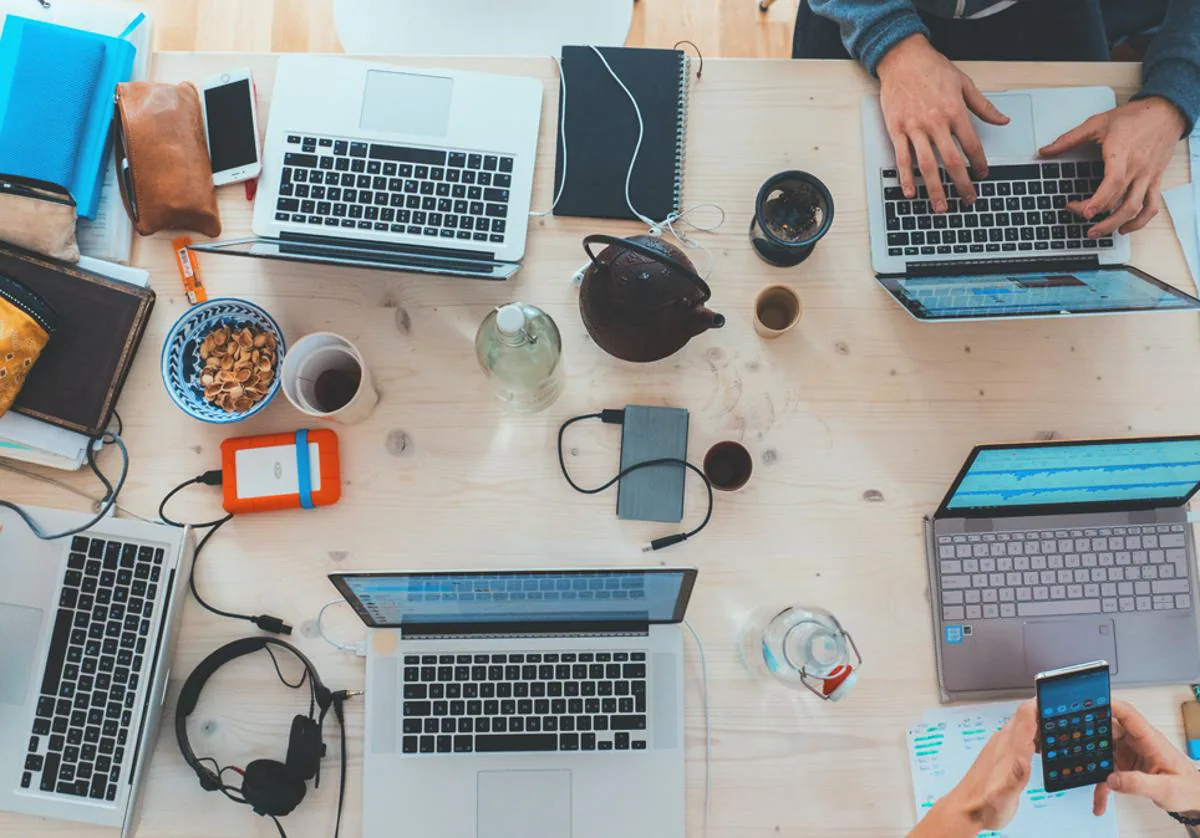If today were cake, I would divide it into three parts. One goes to sleep, another to personal life, and another to work. It is an 8-hour day, which was established as a norm at the beginning of the 20th century. But those hours we spend at work not only have a direct impact on our income and financial reality, but also affect our health.
Work is an important part of happiness. It's one of many things the Harvard Happiness Study has been examining since 1938. “There's a cliche that, on their deathbed, no one wishes they had spent more time at the office. It's a cliche for a reason: because it's often true,” As Robert Waldinger and Mark Schultz, current leaders of the research, write in the book A Good Life (Planet). Time spent at work affects time outside of work. vice versa. It affects romantic relationships, brings stress into the home and permeates everything else. That's why it affects health, but it can also affect something more important, like mental health.
he Stady An InfoJobs study on job abandonment in Spain in 2022 indicated that 32% of people who considered leaving did so for their mental health. It was the number one reason for leaving a job, beyond poor salary. According to Hays' Labor Market Guide, 43% of Spanish employees suffer from work burnout. They suffer from “burnout” because their work has burned them out
But what is the role of the development of the labor market and its conditions in all of this? Work has changed in the 21st century in parallel with how digitalization is changing society. It is not even a closed development: the development of tools such as artificial intelligence will imply new modifications to functions. Today, digital transformation has created a hyper-connected society, where everything moves much faster and where the stimuli – and interruptions to the workday – are much greater. It has also had an impact – and not necessarily for the better – on instability, with the so-called “gig economy”.
Even new jobs have appeared. The mental health data for these new occupations is not particularly optimistic. 57% of social media marketing professionals — such as community managers — admit they deal with mental health issues, according to the latest “Emotional Support Report,” compiled by Hootsuite. 42% explained that the nature of their work worsened their conditions.
All working hours
Technology has made separating private life and work life more complex than ever before. One of the latest studies by the Malasmadres Club, prepared with Movistar, indicates that 7 out of 10 women believe it is important to control their use of mobile phones at home. They realize that it is difficult for them and the main reason is work: 6 out of 10 are looking for work things at home. It is true that participants also realize that during working hours they also follow up on personal issues on their mobile phones.
In fact, the fact that they do statistically helps to see something that psychologist Ismael Dorado, organizational secretary of the Spanish Society for the Study of Anxiety and Stress (SEAS), confirms on the other end of the phone: the boundaries between private and professional life are becoming more diffuse today. “The workday is anytime,” he explains.
Technology has led to this. Not only does this mean that work comes home with us – and Dorado recalls that they have lost what were previously seen as clear rules of politeness, such as not calling at certain times, in new tools, such as WhatsApp – but that it also affects our mind processes. “Our ability to disconnect is very slow,” the expert says. A study conducted by Sodexo two years ago concluded that 30% of Spaniards were no longer able to do so during the holidays. Hays' latest guide actually indicates that 51% of professionals find it difficult to disconnect in general.
Since we can no longer press the pause button on work, we occupy moments that were previously spent on entertainment, rest, or being with family and friends. “We take time away from other important things,” Dorado says.
In fact, one might wonder what impact remote work will have. Its advantages are clear: it facilitates matchmaking, opens the door to geographic diversity, or allows for greater flexibility. However, it has downsides that can negatively impact mental health. This is what Waldinger and Schultz pointed out in their book. They point out that “working from home isolates us from social communication that is important in the work environment.” Dorado also notes that no matter how stressful our colleagues sometimes are, such socialization is generally “essential.” It's key to reducing the stress that work creates when you “unload” it.
Equally important, remote work makes those already blurred boundaries between the workday and private life less clear. “Any time is a work zone,” Dorado says.
Community question
Ultimately, work is another element of the society in which we live. Therefore, the issues that change people's behavior also affect how they experience the world of work and its consequences.
Thus, Dorado talks about how FoMO, the fear of missing out, came about, and how new technologies have created a “compulsion” to always stay connected and receive notifications. In a hyper-connected society, “we have another series of problems, like the anxiety that comes when the battery runs out,” he explains. We have become hypervigilant and anxious, and this is not good for our mental health. This also affects the way we live our working day.
In parallel, employment at the beginning of the 21st century has become something almost an identity, like “I'm my job” and that recurring phrase that if you do what you love “it's not work.” Dorado believes this kind of statement is “psychological populism,” as if if you try hard you will achieve it (you can't always achieve everything). “It seems like if we're not happy at work it's our fault,” he says. Failure to achieve this leads to frustration. “Without forgetting that work is work,” he points out. “Life is what begins when we get out,” he insists.
Keeping this in mind is important for mental health. So this is something as basic as the nature of the job. In the end, it all boils down to something of the World Health Organization itself pointing to In their recommendations: Decent work is good for mental health. It is intended for workers and also for companies. according to mathematical calculations According to the International Labor Organization (ILO), 12 billion working days are lost each year due to depression and anxiety. There is a trillion dollars in annual losses to the global economy.

“Beeraholic. Friend of animals everywhere. Evil web scholar. Zombie maven.”

:quality(85)/cloudfront-us-east-1.images.arcpublishing.com/infobae/7RZ4PSPCSVHX5PY7Y7A4F2P2SE.jpg)





More Stories
The six keys that reveal the secret of happiness, according to an expert
What does it contribute to your health and how many calories does it contain?
The moon will have its own Internet service: NASA and Nokia plan with 4G network